Get ready to shop till you drop in Tokyo! This vibrant city offers a mind-blowing array of shopping experiences, from high-end fashion and traditional crafts to vintage treasures and cutting-edge gadgets. Whether you’re searching for souvenirs, unique gifts, or just want to soak up the atmosphere, Tokyo has a neighborhood for you.
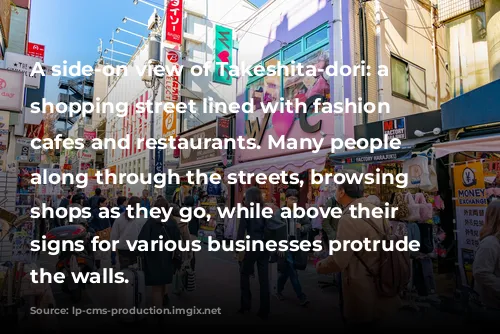
Asakusa: Where History Meets Modernity
Asakusa is a captivating blend of old and new. Once the heart of Edo’s bustling marketplace, it now houses Tokyo’s oldest Buddhist temple, Sensō-ji. Wandering through its charming lanes and alleys, you’ll stumble upon hidden gems like Tokyo Hotarudo, a treasure trove of vintage curios, and Yamakichi, brimming with ceramics and lacquerware.
For souvenir shopping, the bustling Nakamise-dōri street leading to Sensō-ji is a great starting point. However, venturing off the beaten path into the back streets will reveal a world of higher-quality items and less crowded shopping. For a taste of Japan’s diverse regional specialties, explore Marugoto Nippon, a store showcasing products from all 47 prefectures, from pickled seaweeds and fragrant salts to rare sake and craft wines. And foodies will be in their element exploring Kappabashi-dōri, a street lined with culinary-supply shops.
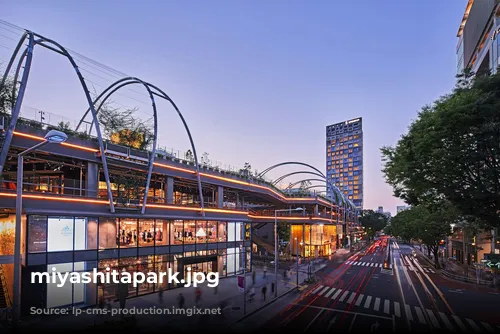
Ginza: Tokyo’s Glamour and Sophistication
Ginza, Tokyo’s most prestigious shopping district, oozes luxury and sophistication. Glittering department stores like the iconic Mitsukoshi and the avant-garde Dover Street Market Ginza beckon shoppers seeking high-end fashion and designer goods. The dazzling Ginza Six mall boasts the delightful Imadeya Ginza sake store, known as the “Liquor Beacon of Ginza,” where you can sample a range of sakes before making your purchase.
But amidst the grand facades, Ginza also holds simpler treasures. Discover fine crafts at Takumi, indulge in a cigar at the Davidoff of Geneva Ginza Shop, or lose yourself in the nine floors of stationery and art supplies at Itōya. A shopping trip to Ginza is an experience in itself, though be prepared for the high prices.
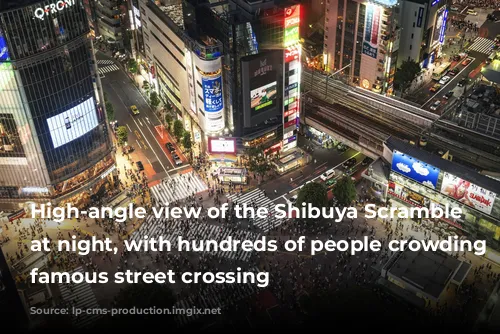
Kuramae: A Hub of Young Creativity
Kuramae, once a drab warehouse district, has transformed into a vibrant hub for young artisans. Here, creativity flourishes in every corner. Visit Camera for stylish leather goods and a caffeine fix, browse Maito for clothing dyed with traditional, natural pigments, or design your own notebook and ink color at Kakimori.
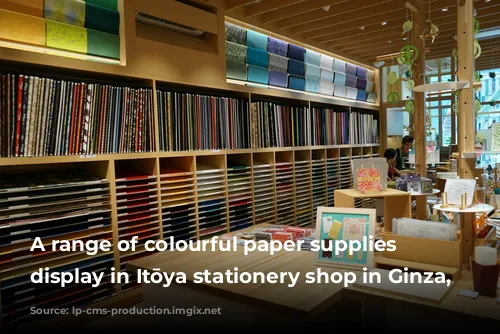
Kōenji and Kichijōji: Counterculture and Boho Chic
West of Shinjuku, Kōenji is a bastion of counterculture, where secondhand shops and unusual finds reign supreme. The ramshackle Kita-Kore Building houses a collection of street fashion stores, while vintage enthusiasts will adore Sokkyō’s coveted collection of pre-loved goods.
Venture further west to Kichijōji, a haven for homeware lovers. Embrace boho style at Outbound and discover antique ceramics at Puku Puku. Kichijōji’s lively jazz bars provide the perfect soundtrack for browsing the record collection at Disk Union Kichijoji Jazz Hall.
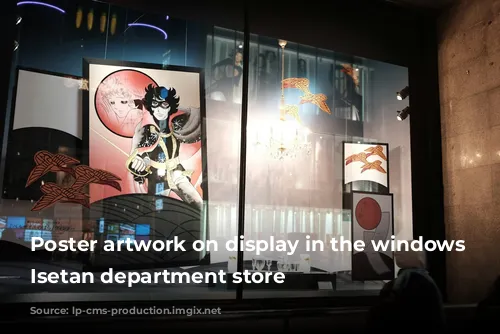
Daikanyama and Naka-Meguro: Stylish Enclaves
Daikanyama is a chic residential area filled with stylish boutiques and charming cafes. Okura offers garments dyed with traditional indigo, while fashionistas will be drawn to the plethora of accessories specialists. Bibliophiles will lose themselves in Daikanyama T-Site, a labyrinth of literary genres with a fantastic collection of photobooks and English-language novels by Japanese authors.
Naka-Meguro, a bohemian neighbor, is home to secondhand stores, trendy cafes, and hidden lounge bars. Vase, with its vintage clothing, is a highlight for fashion lovers, while Vendor offers modern Japanese fashion brands.
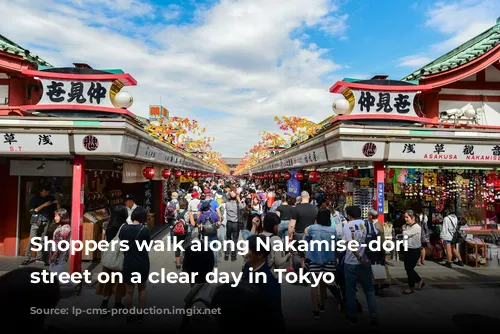
Shibuya: The Heart of Teen Trendiness
Shibuya is Tokyo’s epicenter of youth culture, pulsating with a youthful energy. Shibuya 109 showcases the latest youth fashion trends, while Candy features underground designers. For everything from homewares and gadgets to accessories, Tokyu Hands is a haven for browsing. Gamers will find their paradise at Shibuya Parco, with stores dedicated to Nintendo and Capcom merchandise.
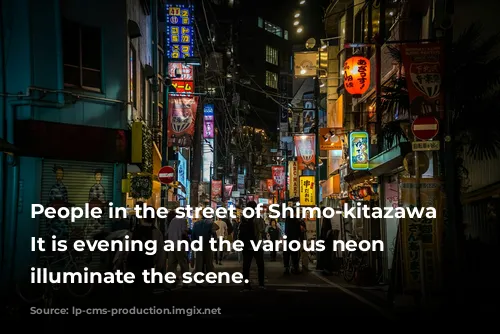
Miyashita Park: A Modern Oasis
Miyashita Park, a recently renovated shopping mall, boasts a rooftop park and garden, offering a breath of fresh air in the heart of the city. Start your day with an ice cappuccino and pastry at Bread, Espresso & Machiawase, or indulge in soft-serve ice cream at Miyashita Cafe.
Explore vibrant African textiles at Cloudy, supporting education in Ghana with a portion of its proceeds. For something more quintessentially Japanese, head to the GBL shop for unique Studio Ghibli souvenirs. Fashion enthusiasts will be drawn to Kith, one of Tokyo’s trendiest street fashion and sneaker stores, and popular brand shops, including Adidas, New Era, The North Face, Gucci, and the world’s first flagship Louis Vuitton men’s store. The mall’s airy spaces, a testament to the designers’ commitment to customer experience, make navigating Miyashita Park a breeze.
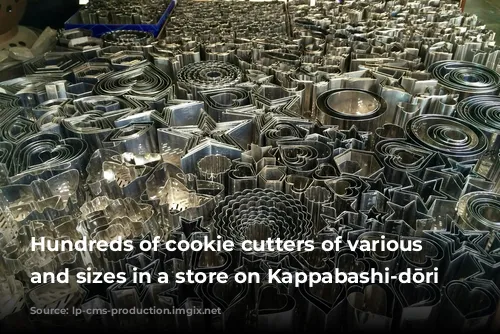
Shimo-Kitazawa: A Haven for Vintage Lovers
Shimo-Kitazawa, a beloved haunt for students and art enthusiasts, is known for its eclectic mix of shops, pubs, and hidden bars. Stroll through its narrow streets to discover Tokyo’s highest concentration of vintage clothing stores, including Haight & Ashbury, iot, Lost Boy Tokyo, and Desert Snow.
Shimokita is also a haven for music lovers, with record shops like Flash Disc Ranch and Jet Set. The Shimokita Garage Department, a covered market, offers a mix of unique stalls.
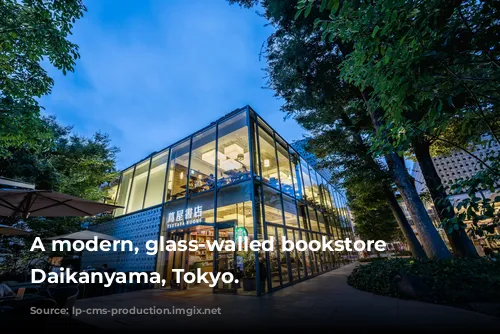
Harajuku and Aoyama: Fashion’s Extremes
The twin neighborhoods of Harajuku and Aoyama are synonymous with fashion. Takeshita-dōri, the youthful shopping strip in Harajuku, is where experimental hipsters layer haute couture with vintage finds. On the other side of the spectrum, Aoyama’s stylish Omote-sandō boulevard is the domain of sophisticated high fashion. Ura-Hara, a maze of backstreets behind Omote-sandō, is a treasure trove of eccentric little shops and secondhand stores.
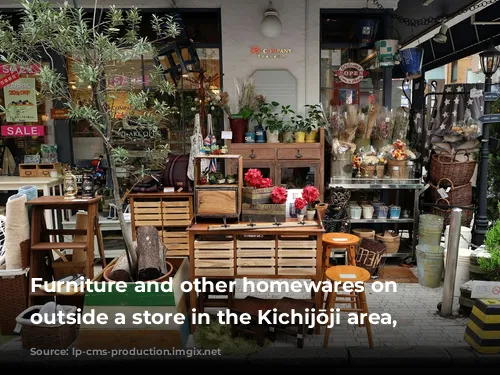
Shinjuku: A Shopping Megapolis
Shinjuku is a shopping megapolis, bustling with energy. Stepping out of the train station, you’ll be immersed in a sea of lights and noise, making the entire neighborhood feel like a vibrant pachinko parlor. Amidst the chaos, discover Isetan, one of Tokyo’s most revered department stores; Don Quijote, a “variety” store offering something for everyone; and Disk Union, a music lover’s dream with eight stories of secondhand vinyl and CDs. Bibliophiles will appreciate the extensive collection of English-language books and manga at Kinokuniya Shinjuku South.

Akihabara: Tokyo’s Electric Town
Akihabara, known as Tokyo’s Electric Town district, is a wonderland for electronics enthusiasts. Akihabara Radio Center, a treasure trove of electrical components, and Yodobashi Akiba, believed to be the world’s largest electronics store, are just two examples of the neighborhood’s tech-savvy offerings.
Akihabara is also the heart of Japan’s otaku culture, dedicated to anime, manga, and Japanese pop culture. The huge Mandarake Complex caters to the otaku crowd, while Super Potato and Retro Game Camp are bursting with video game nostalgia. The under-the-train-tracks crafts bazaar 2k540 Aki-Oka Artisan offers unique handmade crafts.

Tips for Shopping in Tokyo
• Many stores, especially department stores, offer tax-free shopping to foreign tourists spending over ¥5000. Bring your passport and look for the tax-free stickers in the window.
• Carry some cash with you: traditional and smaller stores may not accept credit cards.
• Bargaining is not common in Japan, except at flea markets and occasional electronics stores.
• Tokyo’s department stores have excellent basement food halls, called “depachika,” which are great for finding foodie gifts or enjoying a mid-shopping treat.
From traditional crafts and vintage treasures to cutting-edge technology and international fashion, Tokyo offers a shopping experience unlike any other. So, pack your bags, grab your shopping list, and get ready to explore the vibrant and diverse world of Tokyo shopping.



